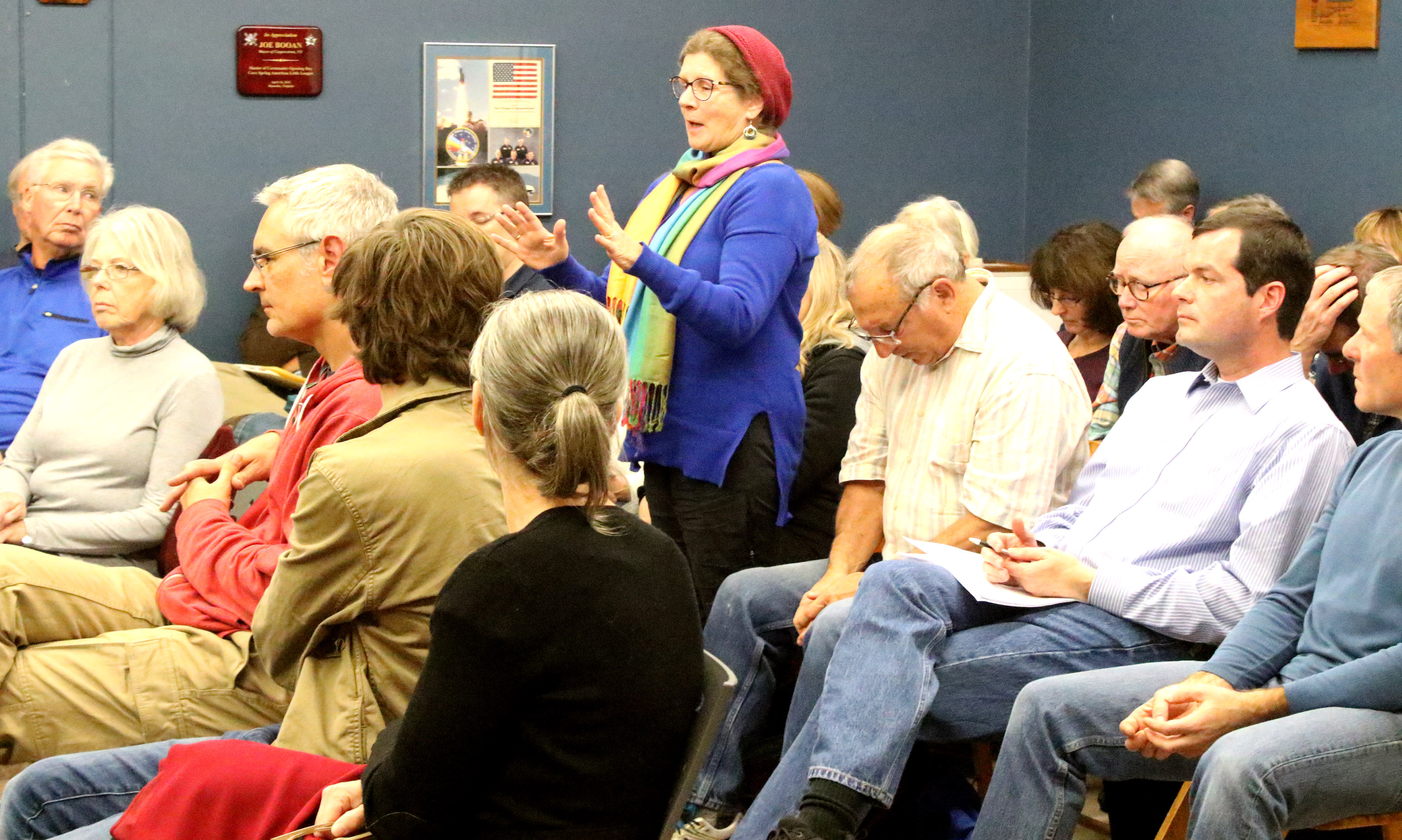VOTE ON CODE DELAYED A MONTH
Cooperstown Trustees
Retreat On Dorm Zoning

By LIBBY CUDMORE • Special to www.AllOTSEGO.com
COOPERSTOWN – Dormitories are out.
Facing citizen pushback, the Cooperstown Village Board voted Monday, Oct. 28 to remove the dormitories – defined as six or more bedrooms that share a common kitchen and living spaces – from “special use” consideration in residential districts, and moved from permitted to special use in commercial districts.

The change came at the end of 40 minutes of public comment at a packed trustees’ meeting – a third row of seats had to be added to accommodate citizens – on the proposed changes to the village’s zoning law.
That law – voting on it was delayed a month – would allow special-use permits to permit single family homes to be broken into three units in residential districts.
A vote was delayed until the trustees’ next meeting Monday, Dec. 23.
“When we started reviewing the comprehensive plan, there were a lot of issues related to year-‘round housing,” said Trustee Cindy Falk. “One of the action items in the plan is to assure a variety of types of housing in a variety of forms for all life stages and economic statuses.”
The law, as presented, was developed by a zoning commission in 16 meetings over 14 months., including a Powerpoint presentation Aug. 19 at the fire hall, handouts and a public comment period.
“We took information from that meeting, as well as notes from the county planning board, and made those changes,” said Mayor Ellen Tillapaugh.
The challenge, attendees argued, and some trustees agreed, was preserving neighborhood character.
“Some change is good, but we get a lot of guests who comment about how ‘quaint’ and ‘beautiful’ our village is,” said Marc Kingsley, Inn at Cooperstown proprietor. “These zoning changes could affect our quality of life, and I don’t want to see us become another Saratoga Springs or Oneonta.”
“Multi-family apartments are a business,” said Trustee James Dean. “If we turn every house into a business, people won’t want to come. I don’t see an upside.”
Falk pointed out that Dean’s own neighborhood, Delaware Street, has been zoned for multi-family housing without the three-unit restrictions since the 1960s. “It doesn’t seem to have had an effect,” she said.
Many of the concerns were directed at Bassett Hospital, which would be most likely to create dormitories for their medical students in residential neighborhoods, attendees said.
“I applaud what Bassett does, but they have compromised a lot of neighborhoods,” said Rick Hulse Sr. “They come in and they cut down a lot of trees for parking. We are selling our heritage for pottage.”
Trustees Macguire Benton, Jeanne Dewey and Rich Sternberg reiterated their support for the revised code.
“We don’t need a 12-story dorm, but we have to figure out how to house people who support the primary economy of this village,” said Sternberg. “Nurses come here after graduation, stay a year and get out.”
“Many of our nurses and teachers are driving from an hour away,” said Dewey.
“In my experience, and what I see my friends going through, the apartments for rent in the village are slim pickings,” said Benton. “The goal is to bring more folks here, and I’m comfortable with three-unit housing. I hear the worry about the dorms and the loss of green space, but I think there’s a middle ground.”
All proposed projects would still be subject to planning board and HPARB, Falk said.
“I want to remind the board to listen to their constituency,” said County Judge John Lambert, a River Street resident and former village attorney. “People are not happy with this law. When constituents come and speak like this, you need to take a look at what you’ve got.”
The board did listen, voting to make several recommended changes and take them to the county planner. They will bring the revisions back for a second public comment period during their next meeting on Monday, Nov. 25.
“There’s no harm in stepping back,” said Village Attorney Martin Tillapaugh. “It was a 14-month process, another month won’t wreck it.”

